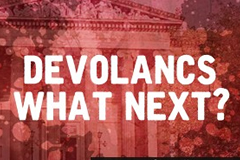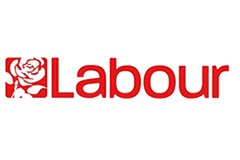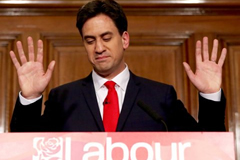“I grew up in a working – class household, had the traditional loud left leanings in my young manhood, but the Labour Party is receding into the mists of history, as relevant to our own time as the Whigs or the Monster Raving Loony Party. There is no Old Labour or New Labour anymore; there is only Dead Labour – a 20th Century party who find themselves as pertinent as banana rationing.”
So wrote my favourite author of fiction Tony Parsons in his latest column for GQ magazine, in a sarcastic, cynical and, to be fair, at times accurate rant dressed up as an obituary for the Labour Party.
As we approach the end of what has been an unmitigated disaster of a leadership contest for the official opposition, it would be easy to agree with Parson’s analysis that, for Labour, there is no coming back from this.
Even if Jeremy Corbyn fails in his bid to become leader, the damage Labour has suffered as a result of it behaving like a sixth form debating society, and worse allowing the extreme left to hijack its post- election post mortem is clearly significant.
It will take more than one parliament for Labour to recover, and it will be relying on local government leaders such as Sir Richard Leese in Manchester, Joe Anderson in Liverpool and, they hope, Tessa Jowell in London, to keep Labour alive, even in its ‘heartlands’.
However, what Parson’s and other Left turned Right commentators forget is that Labour has been here before – and managed to come back spectacularly.
Margaret Thatcher swept to power on the slogan ‘Labour isn’t Working’ in 1979, and the Conservatives were then presented with a run of 18 years in government as their opponents elected Michael Foot as its leader, and in 1983 offered the British electorate a red blooded, Socialist Manifesto described after a record General Election trouncing as ‘the longest suicide note in history’.
Not until 1997, with a bright young thing that was Tony Blair, was New Labour able to extinguish an image of union domination, endless strikes, the winter of discontent and a politics of envy.
But, as much as Blair, Mandelson, Campbell, Brown and even Prescott can take a degree of credit for their party’s rehabilitation, Labour’s recovery was most significantly contributed to by – the Conservative Party.
The poor quality of opposition, the belief that they were unbeatable, an arrogance that was felt and, eventually loathed, by most of us outside of the Westminster bubble, was the real undoing of Conservative rule, and the beginning of a record thirteen year run of Labour power than would have seemed beyond impossible just fourteen years earlier.
Mrs Thatcher’s introduction of the poll tax; cash for questions with Neil Hamilton; Norman Lamont’s economic disaster that was the ERM; David Mellor’s extra marital activities in a Chelsea shirt; Cecil Parkinson’s extra marital activities without a shirt; the Tories obsession with Europe and John Major’s ‘Bastards’ moment – the list of gaffs, mishaps and downright moments of incompetence became endless.
Blair was an attractive alternative for the electorate to turn to, and his modernisation of Labour helped deliver a landslide for his party in ’97. But, Blair or no Blair, Labour would have won that election anyway.
For, in the end, it is government’s that lose elections, rather than opposition’s winning them.
It will take Labour time to recover from its current self- indulgence, but recover it will. Because, in time, whether it be another huge split over Europe, a cut too far, personality clashes between Boris Johnson and George Osborne, or just politicians acting like humans and getting caught out, the Tories, at some point, will save Labour. That’s why Tony Parson’s latest column in GQ is simply another piece of fiction.







